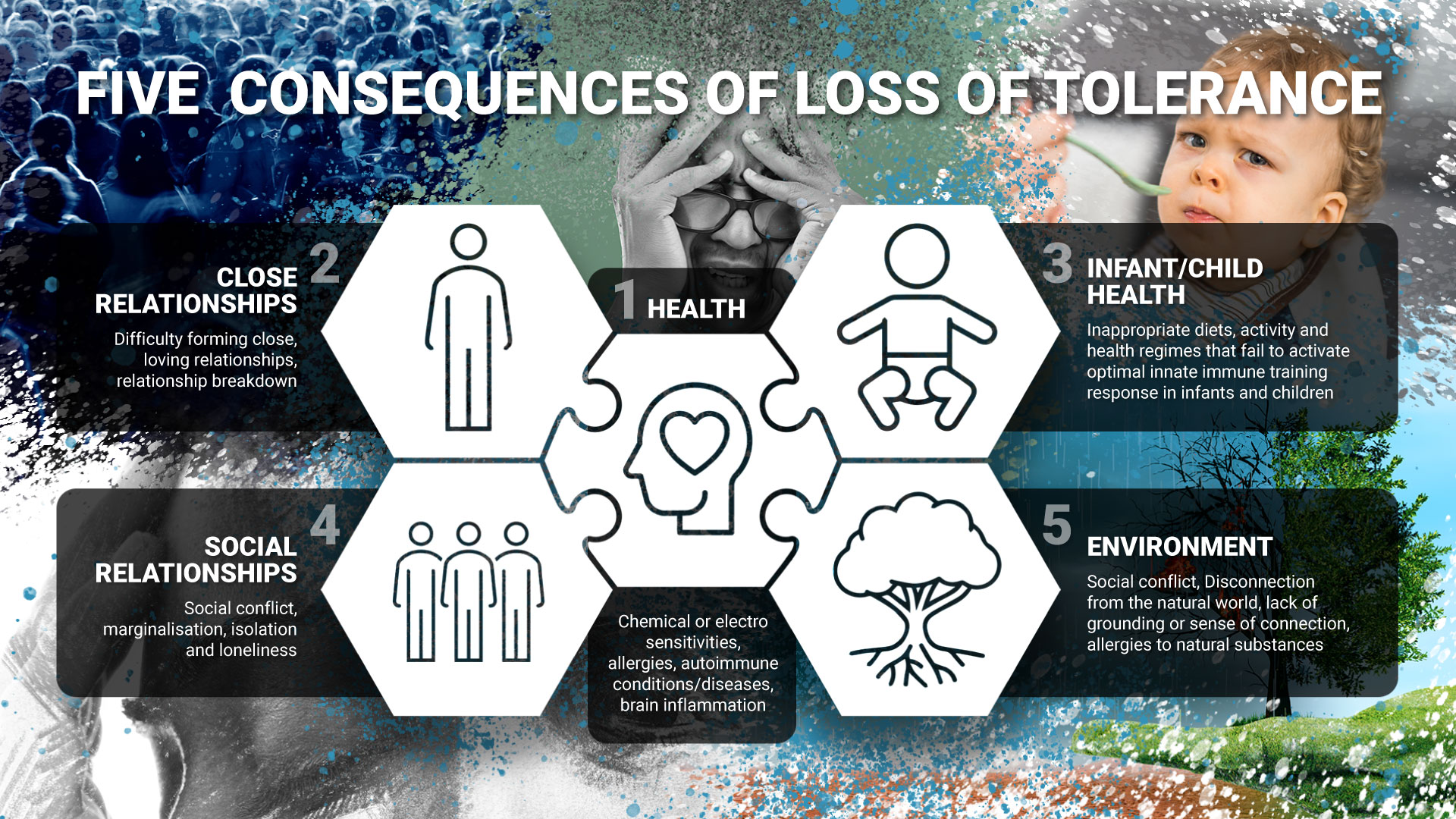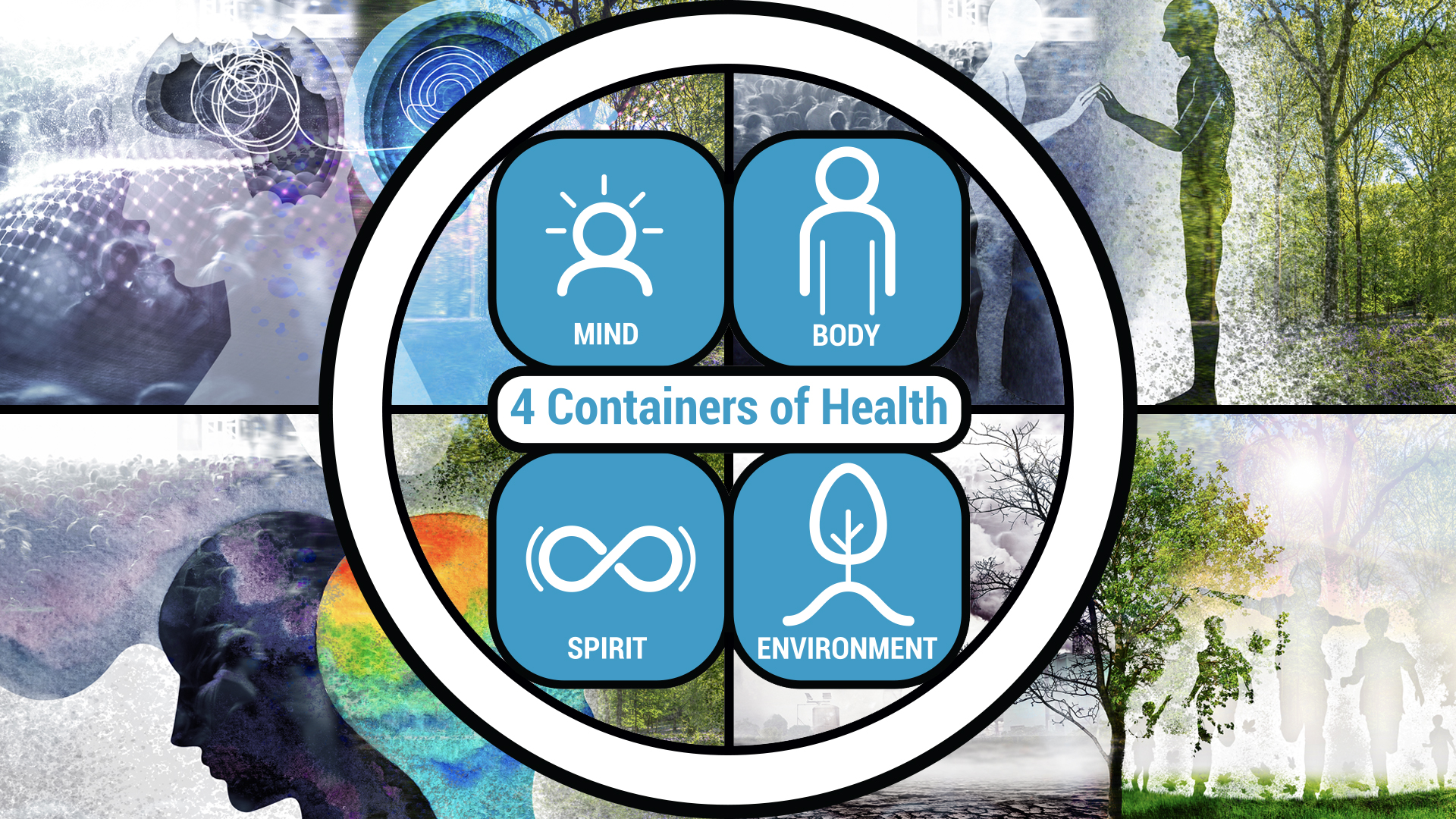Content Sections
By Rob Verkerk PhD, ANH founder, executive and scientific director
Looking at life from within a silo, especially through a restricted lens, comes with considerable risk. Yet so many of us do it, a lot of the time, often without even realising it. Let’s not forget the benefits – they are many; that’s how we’ve become such sophisticated technologists, how we’ve sent rockets into space, and learned how to use electricity and build superconductors that can allow us to communicate with each other through the electronically conveyed written words that you are now reading.
But the problems potentially outweigh the benefits if you’re consistently unaware of just how restricted your view of the world might be.
The interlinked notions of perspective and context are at the heart of this month’s series, where we’ll be looking at our own species and the ecosystems within which we live, but through the lens of tolerance.
Tolerance is a necessity in all biological and ecological systems, but it doesn’t mean we need indefinite amounts of it. Equally, without it, things go awry.
The delicate interplay between tolerance and sensitivity
Looking at biological systems, there is an ongoing interplay and balance that develops between tolerance and sensitivity. Take, for example, tolerance in an organism, such as when an organism builds up resistance or immunity to a certain agent or stressor when exposed to it many times over.
When a herbivorous insect builds tolerance to a given pesticide, farmers often spray more and more in an effort to control the ‘pest’, and in the process they poison the natural predators and parasitoids that would otherwise control it naturally. That‘s how the pesticide treadmill takes root, creating a great scenario for agrochemical companies – one that turns out to be bad for just about everyone and everything else, including the people who apply the pesticides, the people exposed to them as residues in their food, the natural enemies that would otherwise control the insect, and of course the entire ecosystem that is subsequently contaminated.
A similar process occurs with humans’ relationship with alcohol; drink socially regularly, and you might find you become more tolerant of alcohol. Then you become dependent, and eventually, if you don’t change your behaviour, you end up damaging your brain, liver and other organs, falling victim to one of the leading causes of preventable chronic disease.
Another example, that of insulin and blood sugar regulation, tells us more about the tension that exists between tolerance and sensitivity. If our cells become too tolerant, and therefore resistant to insulin, because we keep chomping on those refined carbs and sugars, several times every day, for months, years and even decades on end, we will become insulin resistant, our glycated haemoglobin levels end up going up and we’ve set the stage for type 2 diabetes.
The examples, I’ve used so far would tend to give you the impression that tolerance is always bad, and sensitivity always good.
Not so. Becoming overly sensitive, or too intolerant, can have as many downsides as being too tolerant. This is particularly bad when you lose the ability to sense the world around you, or within you, clearly. If your senses become fuzzy, you begin to find it ever harder to distinguish friend from foe. Foes may be cells that are part of you, i.e. ‘self’, or they may be signalling compounds that your body uses to communicate internally. They may also be metabolites that your body produces when it breaks foods and other compounds down to create waste products for elimination. They can also be chemical agents, allergens or microorganisms to which we’re exposed that have come in from the outside world i.e. they are ‘non-self’.
Don’t think it’s just humans and other animals that suffer autoimmunity – plants can be afflicted too.
Molecular mimicry is one of the key mechanisms by which autoimmunity is created in the human body. We explain it in our video below that likens it to a computer game in which the player has lost the sensitivity required to distinguish friend from foe.
The reality is that our body systems, as well as ecological systems, all operate within finite limits of tolerance. Our tolerance to sunlight, temperature or availability of water are all examples of this.
When you pull your head out of the silo and look at the bigger picture…
But something is going on at this moment in our own species’ evolution, as well as that of the planet’s, that suggest we are pushing on the extreme limits of tolerance. At the same time, we’re becoming hypersensitive to some things, and quite insensitive to others. This reflects a breakdown of the subtle and exquisite interplay between tolerance and sensitivity.
If we don’t address it as a matter of urgency, we’re going to be in deep trouble, deeper trouble than we’re already in. So much so, that nothing less than the survival of our own species and that of many others with whom we co-inhabit this planet are in grave danger. But we can’t address it and find appropriate solutions until we identify the problem accurately, and that means getting our heads out of our techno-fix, reductionist silos, being less anthropocentric (yes, we are just one of likely several billion species on Earth), and focusing on the bigger picture.
This also means we must stop trusting that governments and mega corporations will find solutions and get us out of the mess we’re in. Nothing about the lip service governments or Big Corp pay to the human health or environmental catastrophes that are unfolding around us like a series of slow motion train crashes, gives me any confidence whatsoever they’re on top of it. Not the UN’s 17 Sustainable Development Goals, not ‘net zero’, not standard wind and solar renewable technologies, not green bonds, not mRNA vaccines, not new genomic techniques (NGTs)—none of it.
Our present reality
The reality is we are descending ever deeper into a crisis that can be defined as a loss of tolerance and appropriate sensitivity, and we see this at almost every level, whether we’re talking about political systems, human communication and media systems, our own health, our relationships with fellow humans, or our relationship with the wider environment.
The infographic below represents a selection of 5 areas in which this loss of tolerance and appropriate sensitivity manifests as major problems and drivers of our current health predicament. But we see it in many other fields too, such as the concerted attack on so-called ‘misinformation’ (that tends not to be misinformation, but rather, information that challenges the establishment’s narrative) by the World Health Organization, the EU’s President, Ursula von der Leyen, America’s Cyber Defense Agency CISA, the Center for Countering Digital Hate, the Nobel Foundation and the US National Academy of Sciences…the list goes on.

Tailoring tolerance series: August 2024
I’ve hopefully gone some way to setting the scene for what’s to come from us in our newsletter this August, as part of our Tailoring Tolerance series. August is a time when many – at least in the northern hemisphere – have a bit of a break, or a lighter work schedule, and an opportunity to reflect on what’s important to them. Perhaps with a view to changing our behaviours in ways that help us improve our health and wellbeing or find more meaning in life.
Each week, we will curate past articles that talk to this theme that dial into a particular ‘compartment’ of our health ecosystem, these being, body (week 2), mind (week 3), spirit (week 4), and environment (week 5).
We look forward to having you on this journey.
Please share this article with your network and encourage them to subscribe to our newsletter so they can receive our August Tailoring Tolerance series free of charge.
>>> If you’re not already signed up for the ANH International weekly newsletter, sign up for free now using the SUBSCRIBE button at the top of our website – or better still – become a Pathfinder member and join the ANH-Intl tribe to enjoy benefits unique to our members.
>> Feel free to republish - just follow our Alliance for Natural Health International Re-publishing Guidelines
>>> Return to ANH International homepage








Comments
your voice counts
There are currently no comments on this post.
Your voice counts
We welcome your comments and are very interested in your point of view, but we ask that you keep them relevant to the article, that they be civil and without commercial links. All comments are moderated prior to being published. We reserve the right to edit or not publish comments that we consider abusive or offensive.
There is extra content here from a third party provider. You will be unable to see this content unless you agree to allow Content Cookies. Cookie Preferences